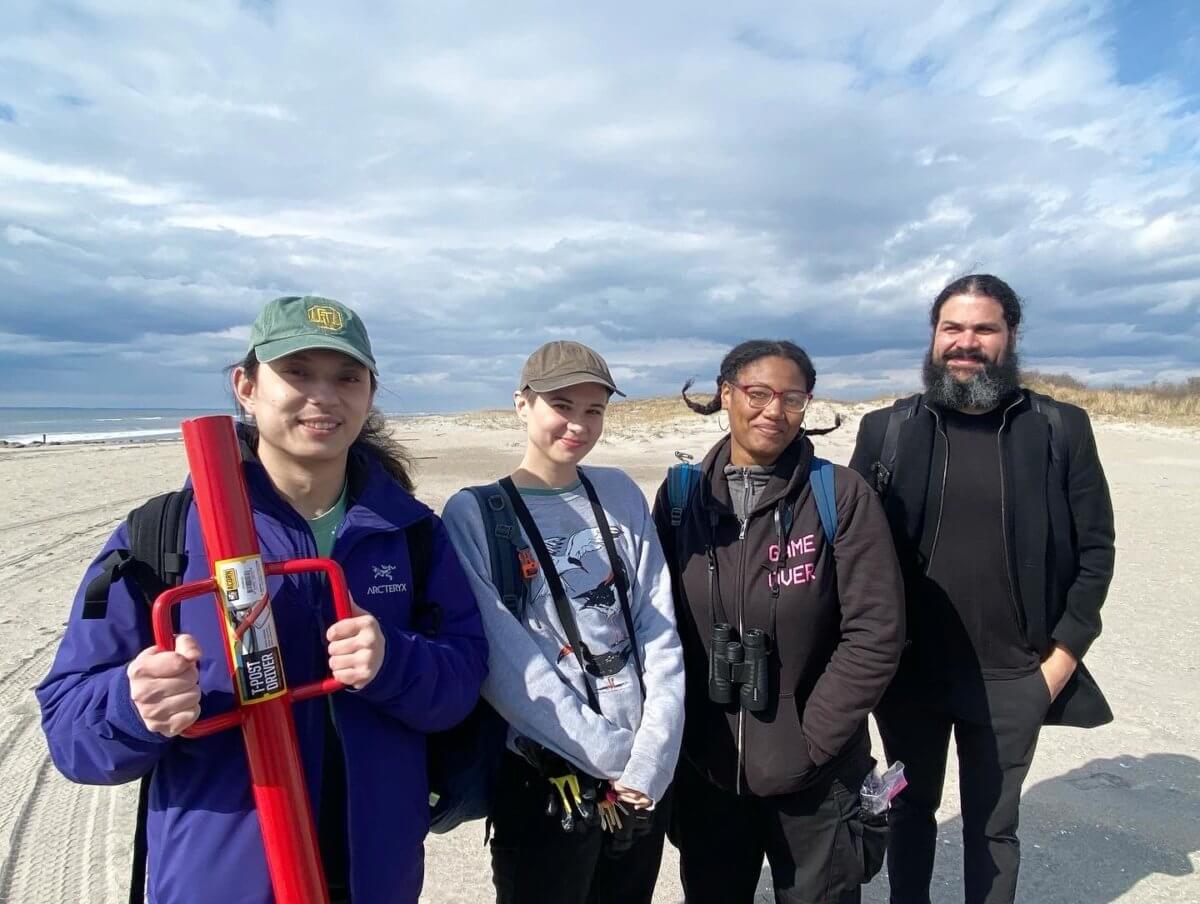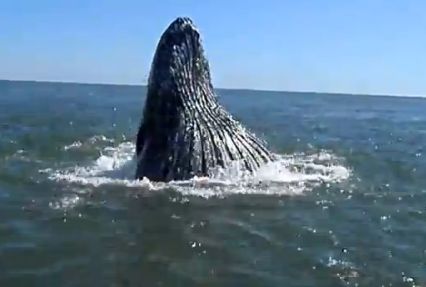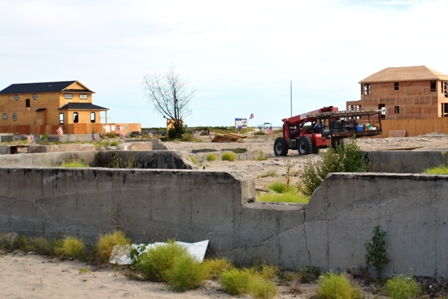Dozens of volunteers from the New York City Plover Project and Gateway National Recreation Area last weekend installed miles of symbolic fencing at Fort Tilden and Breezy Point to protect nesting habitats for endangered piping plovers and other at-risk migratory shorebirds. The stringline is “symbolic” in that it is not an actual barrier, but an important one to alert humans not to enter these areas.
In early spring, the tiny birds fly thousands of miles from the warm shores of the Gulf of Mexico and the Caribbean to the shores of New York Harbor. They make their summer homes hidden within the dunes of Gateway’s beaches along the western end of the Rockaway Peninsula. With less than 8,000 piping plovers left globally, the birds are protected under the federal Endangered Species Act of 1973.
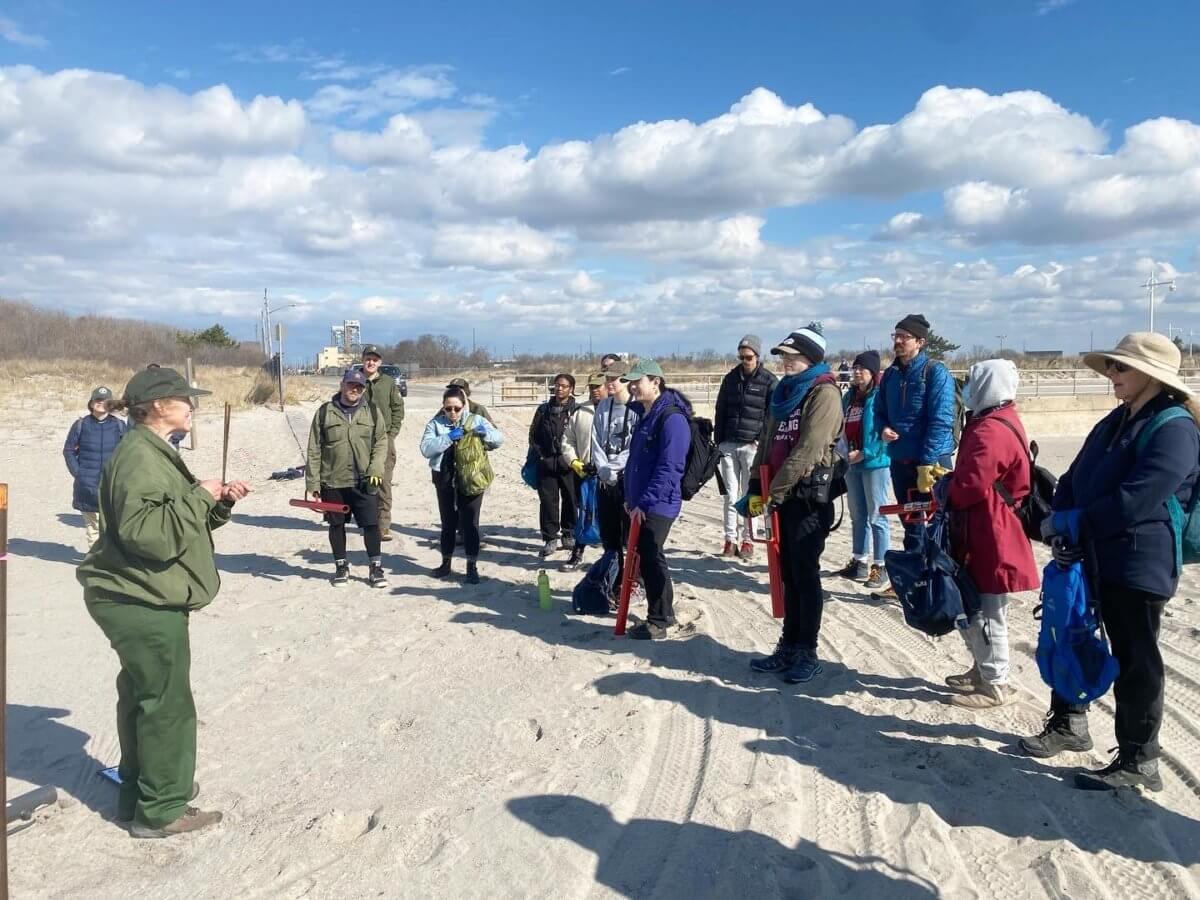
The NYC Plover Project was founded last year as an independent nonprofit organization bringing together residents of the Rockaways and other communities that line the shorelines of Jamaica Bay to help protect the birds in partnership with Gateway National Recreation Center, the Audubon Society, the Jamaica Bay-Rockaway Park Conservancy and other area organizations.
“We are so incredibly grateful to our volunteers for coming out to install beach fencing and signage, to alert beachgoers to our visiting migratory shorebirds,” NYC Plover Project Founder Chris Allieri said. “I think many people are surprised when they learn that just under 100 piping plovers nested in the Rockaways during 2020 and 2021.”
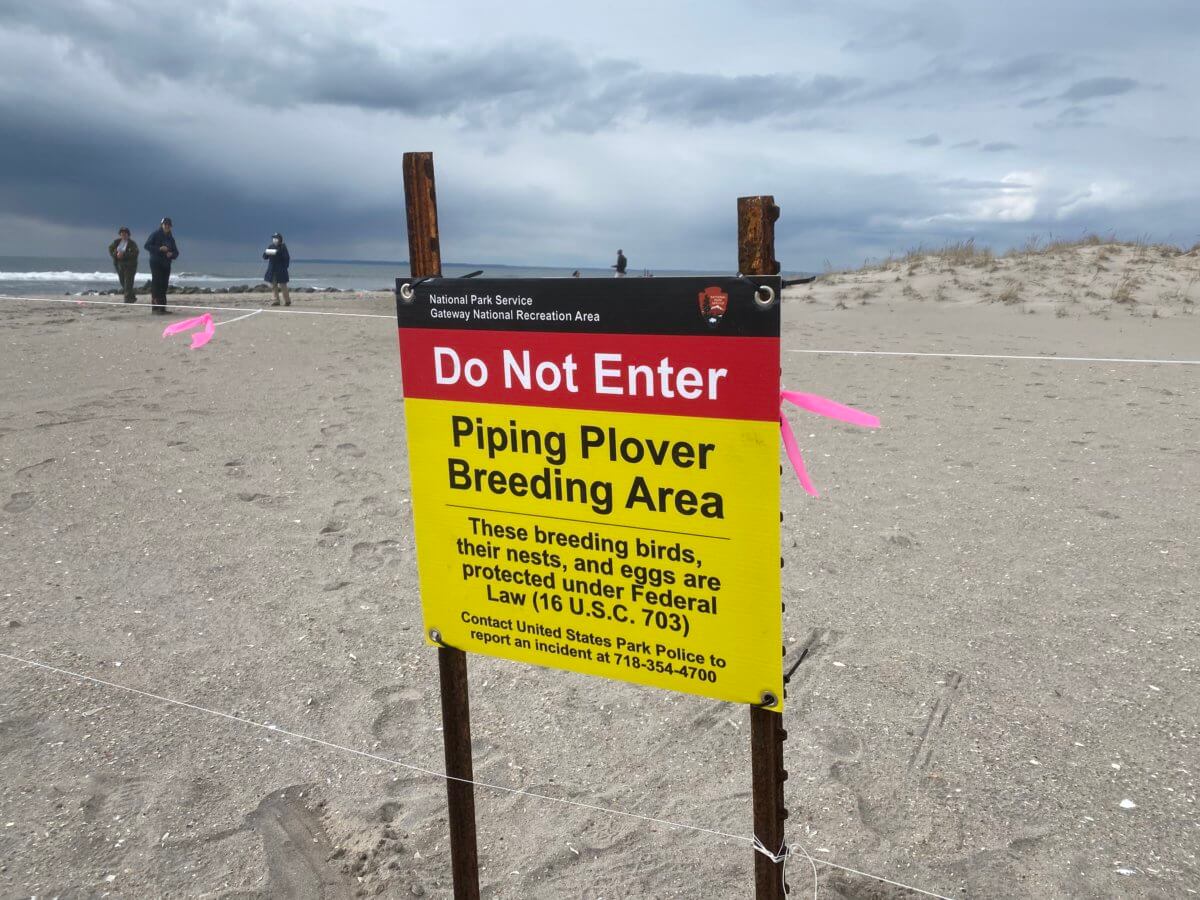
As of March 15, the beach rules changed back to protect nesting piping plovers and other shorebirds, meaning no dogs, kite-flying, fishing, surfing and beach bathing in designated nesting areas. According to the National Parks Service, which administers Gateway National Recreation Area, piping plover chicks need to increase their weight five times within several weeks of hatching so that they’ll be able to thrive and fly. They need access to the shoreline to feed in order to achieve the necessary weight gain.
The NPS says the presence of people on the beach causes chicks and their parents to expend energy running up and down the beach to avoid the perceived threat. Interruption in feeding and energy expenditures prevents chicks from thriving and leads to chick mortality.
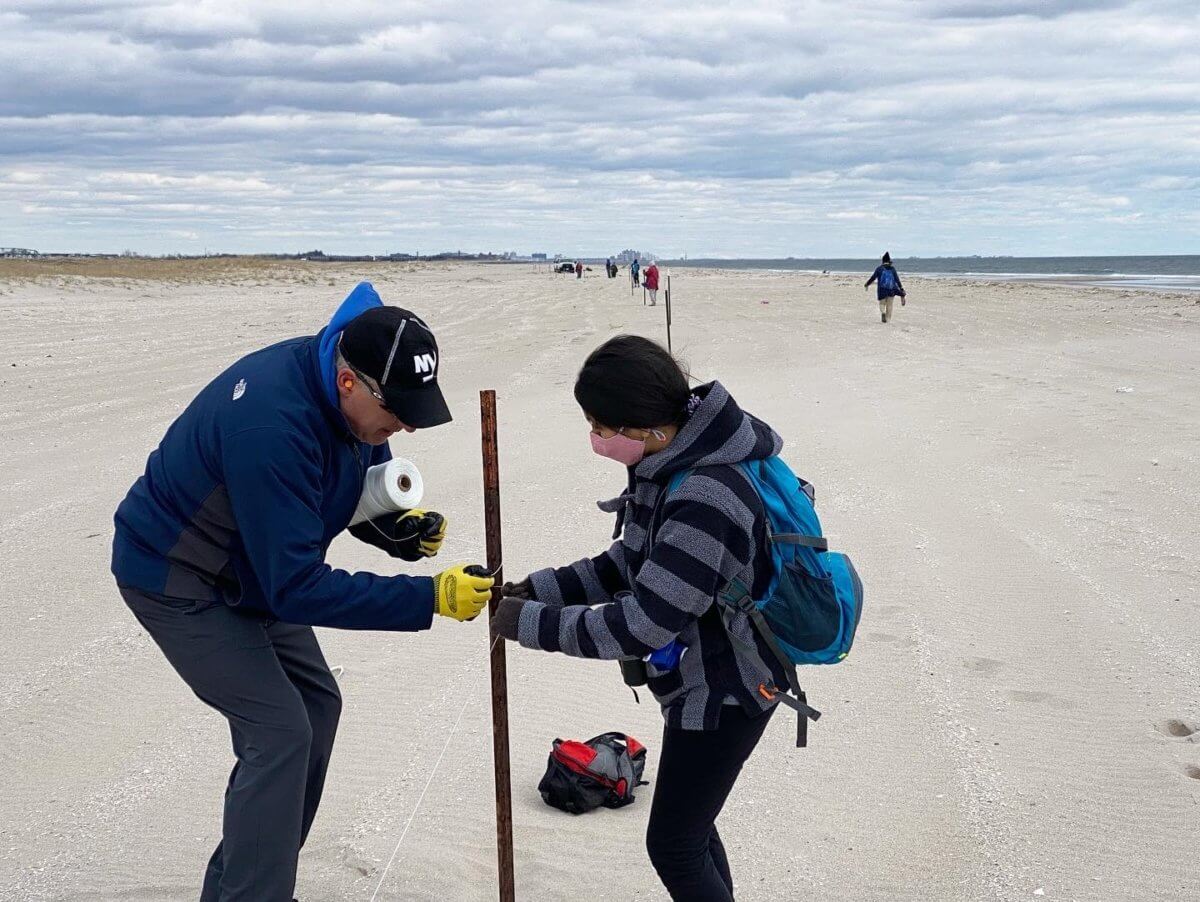
“Powerful storms, predators of all types, dogs on the beach, and of course, us humans, all contribute to the loss of nests,” Allieri explained. “Few plover chicks survive, and we are here to reverse that trend. We have seasonal volunteers who will be out at the beach each day this season. We need help.”
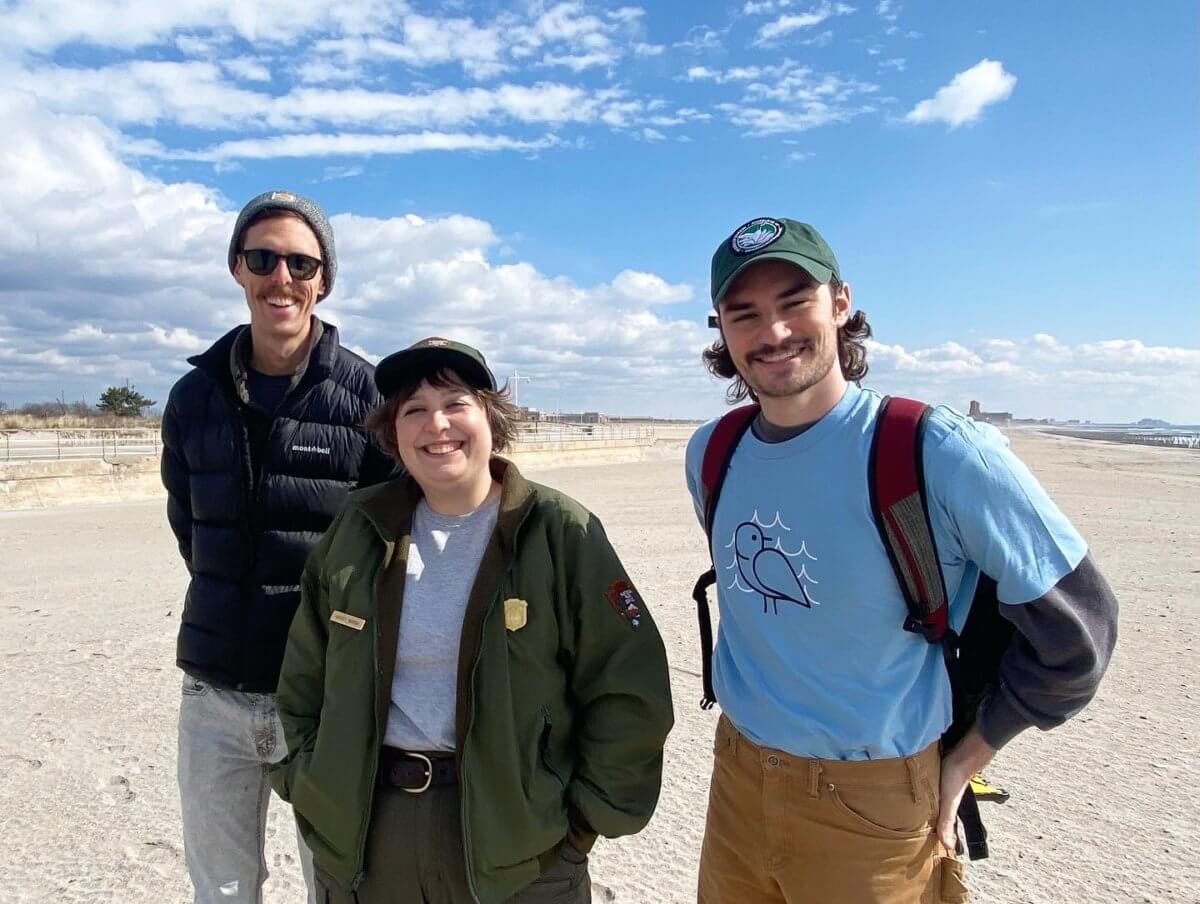
To volunteer with the NYC Plover Project this season, visit nycploverproject.org/volunteer. There is an in-person training at Fort Tilden on April 23. Sign-up is required.
